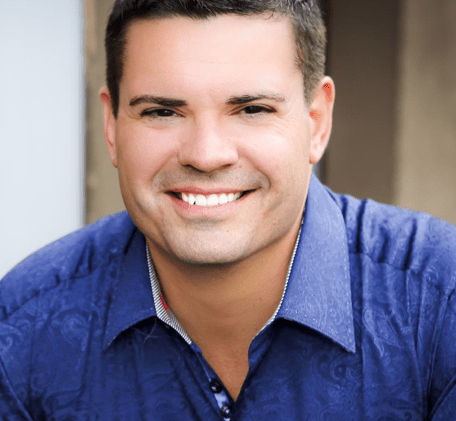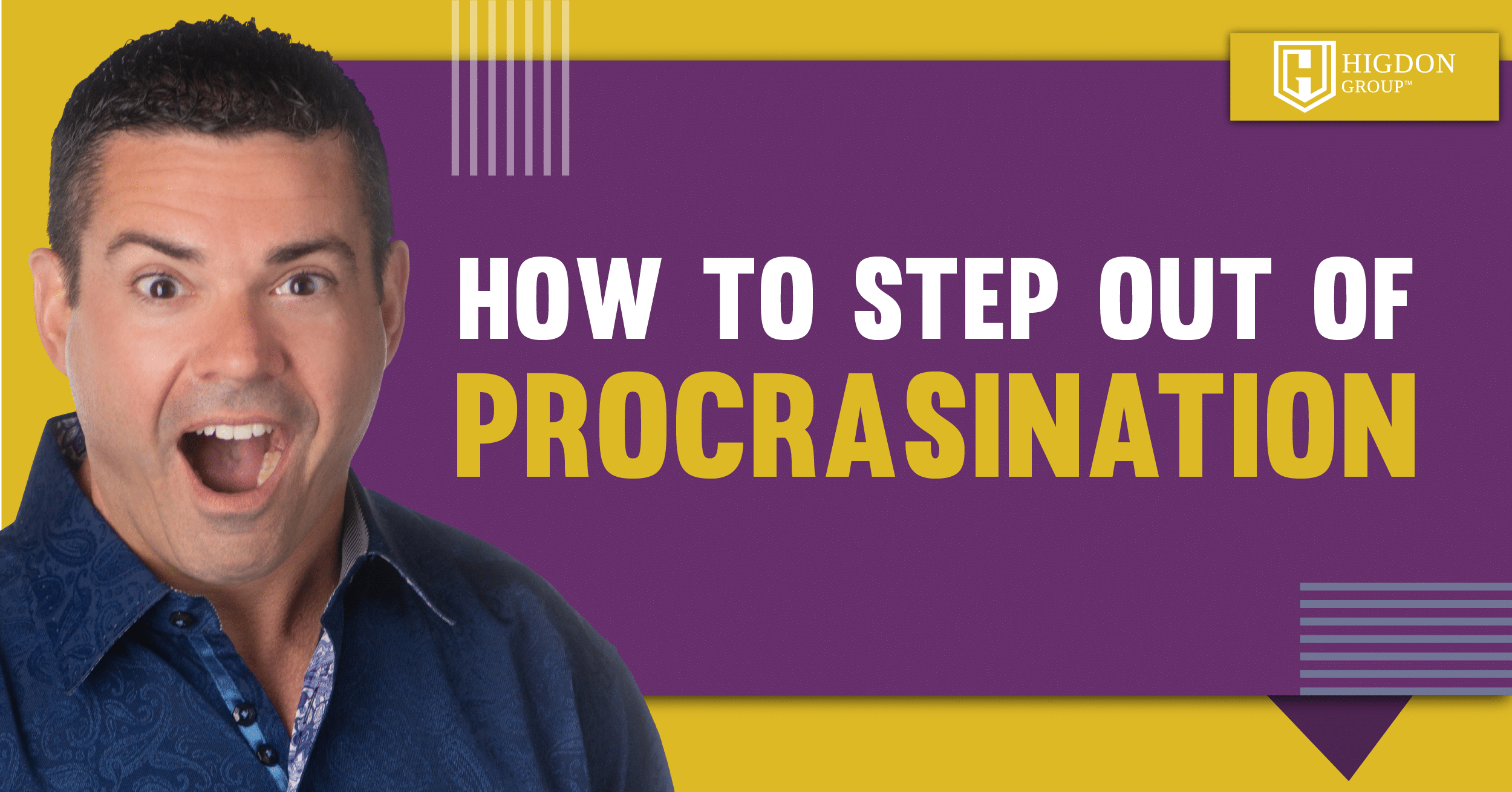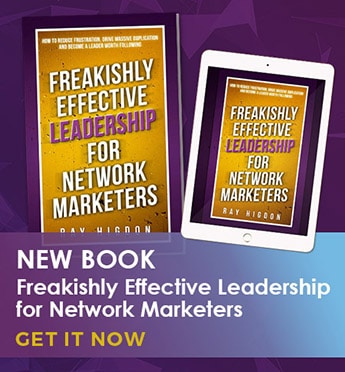Perfectionism and Procrastination
When perfectionism and procrastination combine, this can be your own worst enemy. Today Ray helps Laser Coaching guest break out of this cycle.
If you want to see the full training click HERE or the image below…
How To Step Out Of Procrastination and Perfectionism
Ray Higdon: We got our next wonderful individual here, we got Ed. Ed, what’s happening?
Ed: Good morning, how are you?
Ray Higdon: Morning, morning. So, same question. Where are you at man and how are things?
Ed: My biggest challenge is, I’m a perfectionist and I’ve been like that since high school. Where back when I was in high school, we didn’t have a word processors or word or computers or anything, so I would have to hand write my essays, back at that time. And if I messed up, I didn’t want to erase because it looked bad, so I’d start the whole thing over. And it’s been an ongoing thing with me, where everything has to be just right. I mean, even when I was sitting here and you were talking to Missy, I’m kind of like, is my head in the middle of the screen? What’s going on? And it drives me crazy and it’s a good and a bad thing, I think but that’s my biggest challenge is, everything has to be just right, so I freeze and I don’t do anything until I think everything’s perfect. And when it is, it’s still not perfect, I’ll find something else that needs to be done different.
Ray Higdon: So, did you have a parent that was pretty tough on you?
Ed: You know what? My mom and dad got divorced when I was five months old and my mom raised me herself, she never remarried. So, she was tough, she had to be because I was an only child and I was a pain. I was a pain to her and she’s a good mom and she was tough but I think I needed a father figure around as well.
Ray Higdon: Where do you think this started? Where do you think you being obsessed about being perfect started?
Ed: I think I was born this way, only because I like to say I was diagnosed with a 180 IQ and- [crosstalk] Ray Higdon: I didn’t know they could diagnose that.
Ed: Sometimes it’s detrimental because I wasn’t a good student. I was a good student until I was put in special classes for the smart kids and I think I got bored. And back in that day, I got tired of it, didn’t like learning or anything but as I got older, I kind of paid more attention to life and things around me and enjoyed learning again. And just ever since I was young, I’ve had that, everything has to be just right. Otherwise, it drives me crazy.
Ray Higdon: So, you’re in network marketing, right?
Ed: Yes.
Ray Higdon: Why did you join network marketing? What was the reason?
Ed: I have a friend, a dear friend, when I was a teenager he kind of took me under his wing. He was 21, just got out of the army and he introduced me to one of the first network marketing companies I joined. And, again, I have to do things just right. So, in 2013, I started following this guru, went to one of his retreats and I learned all the scripts, everything but he was a face-to-face guy. He said, you cannot build your business through social media, you have to do it face-to-face. So, I did that since 2013 and then somebody I met through social media, Howard Smith, a friend of mine now, he actually introduced me to you. And then I realized, oh, you can do this through social media. But a friend of mine, from way back when I was a kid, introduced me to it and I see the vision and I’ve been in ever since.
Ray Higdon: What was the reason you joined? What were you hoping to gain?
Ed: At first, I wanted to make money. But in 2008, when the real estate bubble burst, we lost our condo and now I want to help people not… I don’t want that to happen to anyone. And I know this is a vehicle that some people can use to help themselves financially. So, I just want to help people, whether it’s, if they’re in a situation like I was or they got laid off. With this pandemic, there’s all kinds of things going on out there, where people are hurting. I just love people, I love helping them, that’s one of my biggest goals, is just to change people’s lives.
Ray Higdon: So, are you taking action?
Ed: I go in bursts and I get excited about something, maybe a video you did or a book I was reading or something I consume from somebody else and I’m like, ah, this is awesome. And in my mind, I see the pictures, I see myself succeeding and then I go for two, three weeks and then the fire kind of dies out. If that makes sense.
Ray Higdon: Do you get results during these two or three weeks?
Ed: I have not gotten results lately, no. I try to focus on the actions and not the results.
Ray Higdon: But the actions only last two or three weeks.
Ed: Yes.
Ray Higdon: Okay. So, I mean, one, very difficult to build anything by doing it in bursts like that, right?
Ed: Right.
Ray Higdon: Very, very difficult. And because you don’t know who, if you would have followed up with them, who would have moved forward. And perfectionists, there’s usually, not always but usually there’s two things with perfectionists. One, they’re terrified of looking bad, they’re terrified of the opinions of others and two, they are usually more procrastinators. And I don’t know if either of those fit what you feel but this is something that, how you change this is whenever you make your mission higher than your self-image. So, whenever you make, I want to make an impact, when that’s more important than how you look to others, you’ll do the work.
Ed: I don’t really care how I look to others, I do tend to procrastinate. I have a regular job, so I go to work, I bust my backside and then when I get home, I’m just fried a lot of times. And throughout the day, I’m thinking, okay, I’m going to go home, I’m going to prospect, I’m going to do this, that and the other thing. And then I’m just burnt out at the end of the day. And then I feel- [crosstalk]
Ray Higdon: And do you like that? Do you like your job? Is it a great job?
Ed: I’m a customer service rep for a home builder and I do like dealing with people, sometimes I get hammered by people who are unhappy but- [crosstalk].
Ray Higdon: Especially nowadays, right?
Ed: Yeah. I generally like it, just because I like dealing with people who are understanding and can be nice.
Ray Higdon: So, what is your dream life? You said you see pictures and stuff, is your dream life include this job?
Ed: No.
Ray Higdon: Okay. So, a lot of people, their reason for why I can’t should be the reason why they must. If a job wasn’t part of my dream life and I’m exhausted at the end of the day, that’s the reason I’m going to do the work, not the reason that I can’t do the work because that cycle will never end, right?
Ed: Right.
Ray Higdon: If I’m just, if I go to the job that I like but isn’t my dream job and I know that we only live one life, then I come home, I’m exhausted, that’s the reason I’m going to put in the work. And so, my last job I worked for an insurance company, didn’t enjoy it, worked a lot of hours. A lot of times I would leave before the kids were awake and come home after they were asleep and that was the reason that I started working on my breaks. I stopped hanging out with coworkers during my lunch, started doing the work then. I started listening to audios on the way to work, on the way back home. And then I would get home and do work then too. And so, it’s not like I had a job that wasn’t tiring, it was tiring but I was just sick of it. I was sick of that and I knew if I didn’t do something that would stay my existence. And so, the reason of I’m tired and an awareness of that’s not my dream life, should be the reason you do the work.
Ed: Yeah. That makes sense.
Ray Higdon: But I think I would just become, similar to what I was talking to Missy about is, I would just become aware of what non serving things do I believe and am I repeating, that isn’t serving me, right? I mean, I could do this as a terrible experience but I could start saying today that I’m a perfectionist and everyday I repeat it over and over and over and over, over again, over again and eventually I’ll become a perfectionist, right? I’ll, no, no, no, no, right? And so, I’ll slow down how much work I do, I’ll care more about how others view my work and maybe you don’t, right? You’re a rare perfectionist. And so, I’ll look and care about how, I better dot that I and eventually all become that.
And so, I would look at that as, is that really serving me? And this is, for intellectuals this can be tough, right? I wasn’t cursed with intellectualism, I don’t think. But for intellectuals, that can be tough because you think it is what it is, it’s not. You can become anything that you want, there’s nothing that’s held back from you, only that what you believe is held back from you. And so, you can choose right now to be that person of massive action, to be that person that does impact a lot of people, at a time in the world’s history where it’s needed. People need you that, they need you to step up, they need you to do the work. They are never going to visit your home builder but they may find you on social media, through your business.
And so, you can become that but I would stop being so convinced on what I know and that’s where I feel you are, right? You know, but I am a perfectionist and I can’t change this. Well, you change whatever you want. I mean, shit, they’ve proven that there are people with multiple personality disorders can change their eye color, explain that. And we can’t go from perfectionist to someone that’s producing at a high level, of course, we can. And so, anything is possible, you can become whatever you want but you have to believe that. And as long as you’re solidly clenched in to what is real and anything else is not, then very difficult to make change.
Ed: Yeah. I coached baseball for 17 years, I loved it. And I would always be cognizant of what the kids said when they were on the field, I can’t or I am this. So, what you’re telling me is, the way I would coach people and I don’t think it occurred to me until you said that, so thank you.
Ray Higdon: Yeah. Have you heard me share my goofy dance story?
Ed: No. I haven’t heard that one.
Ray Higdon: Okay. So, I’ll share it. And I know that someone here have heard this a few times. Because you’re on the field, right? You’re on the field of life. And so, what you say matters on this field that we’re on and in pursuit of that field, that we actually is what we want to be, right? We’re on this field right here, we want to be that field. And so, the more that we can see and believe and be that field, it becomes. And so, last year for our anniversary, I bought dance lessons for my wife and I.
And I just wanted to spend more time with her and I didn’t really care so much about learning dance necessarily but I wanted to spend more time with her. And so, we start learning dance. Of course, I was terrible, she was amazing. She’s spinning and kicking and all kinds of stuff and I’m just like Frankenstein. And so, about four months in, long story short, what we decide, we want to compete, right? And I come to the realization that I have barely improved at all.
Four months of going one to two times a week, every week, I’ve really barely improved. And the instructor would say something and I would say, oh, I’ll try and I was constantly nagging myself constantly. And so, I realized one day that, man, I’m not using any of my mental power on this thing called dance. What the hell am I doing? This is crazy. And so, I just started seeing myself as a good dancer. I started just putting intention behind it and started seeing it. And so, if there’s anything I want to be, if I want to speak in front of 100,000 people, if I wanted companies to make me offers, if I want to be a good dancer, see it as if it’s already happened and then ask myself this question, what would prove that that’s true? And create a series of emotions around it. And so, in this particular instance, I said, okay, I am a good dancer. What would prove this to be true?
And so, I saw my dance instructor say, wow, impressive. I saw the dance studio owner say, very much improved. And so, I see these things, I feel and it feels nice, I’m a good dancer now. And I go into the dance studio and I tell them, I say, hey, I just want to apologize. I’ve been living in my past and just not really using my mental power up to now but as of today, I’m a good dancer. And they’re like, okay, right? This guy’s lost his mind. And so, four days later, my dance instructor, I do something and she said, wow, impressive.
Verbatim what I had seen four days prior. That same lesson, I do a little fan that the dance studio owner had told me to work on and she goes, very much improved. Verbatim, exactly what I saw. And so, we go, we compete and we had 3, 4, 5 different people that we didn’t know come up to us and say, oh my God, you guys look so good as a couple. How long you been doing this?
What? Less than a year? Oh my God, you guys are amazing. We had so many people come up to us and some came… She was definitely amazing and I feel like I did my very best. People came up to me, when she wasn’t around and told me that I was doing good. I’m like, wow, this feels amazing.
The instructors said, they said, you remember that day when you came in here and you said you’re a good dancer, all of a sudden? I will tell you, your dance skills have exponentially skyrocketed. It was like that day, there was like a fork in the road and you just got so much better since that day. And so, that’s your power, you have that power. You can choose to go from this, not utilizing your power, I’m just a perfectionist, I’m tired, to I have unlimited power and I can be whatever the hell I want.
And so, you have that, you tell others that, now you got to tell yourself that, which is the biggest dragon to slay. That’s the beast that shows up in many different forms, that is there to keep you small and comfy, even if we don’t like the comfortableness. And so, take that medicine that you give to others and you choose to be that powerful version of yourself and you will start impacting more people and you will start to move toward into your dream life. Does that help?
Ed: Yeah, definitely. Thank you for that. Would it be okay if I asked a question, another questions?
Ray Higdon: Sure. Sure.
Ed: One of my biggest fears about becoming successful and getting people into my group is that, I won’t be able to help them, that I’ll let them down. [crosstalk]
Ray Higdon: You’ll look bad.
Ed: What was that?
Ray Higdon: You’ll look bad.
Ed: I suppose [crosstalk] I had to ponder that one. But I want to help people, I don’t want to let them down. I’ll ponder that but I don’t feel like it’s me not wanting to look bad, it’s me letting other people down, not being able to help them. [crosstalk]
Ray Higdon: The only way for us to guarantee not let anybody down is to play so small, no one notices. And that’s where you’ve been. You’ve been playing so small that you couldn’t possibly let anyone down. You have unlimited power within you. Now, does this mean you’re certifying and notarizing a ladder that, I will never let anyone down.
Of course, you’re going to let someone down. Someone will come in with wrong expectations. Someone will come in and they were told something that wasn’t true. Someone will misunderstand you. You’re going to let people down, that’s going to happen but that will never be your intention. And so, if we want to prevent ever letting anybody down, it is really simple, right? The homeless person doesn’t let anyone down, right? We stay right here, everyone has clear expectations of us, we don’t serve anyone. I can’t let down if I don’t give you anything. And so, that’s not the life that you want to live.
You want to live a life where, if you want to inspire someone, every time you go for inspiration, you’re going to run the risk of letting someone down. And so, someone, might’ve been your dad, I don’t know, someone let you down and that became your public enemy number one, I don’t ever want to let someone down, right? And so, someone let you down and that became your enemy, I don’t want to ever let anyone down but for you to live that life, you’re living much smaller than you could be. [crosstalk]
Ed: That helps and makes sense. [crosstalk]
Ray Higdon: You got to be willing to run risk of letting someone down because that’s the only way you can help others, is by you showing up powerfully, is by you showing up with your potential. You’re never going to prevent someone feeling let down, right? I run that risk every day. I get a negative Instagram comment every day. And so, if I didn’t want to get that, I could just hide and not be on camera ever and not do anything and just disappear and start a farm or something. But that’s not who I am, that’s not what my soul is calling for. Your soul is calling for you to be bigger but you’re living those patterns of, let me not let anyone down.
Ed: I see.
Ray Higdon: Does that help?
Ed: Yes, thank you. I appreciate it.
Ray Higdon: Don’t be so addicted to, let me totally escape ever letting someone down because you’ll just never live as big as you can and impact as many as you can. If you look at how many people you’re positively impacting right now and you times that by 100 but there’s the possible to let people down, I think you’d be happier with your life.
Are you looking for coaching to accelerate the speed at which you see success?
How To Attract The Right People To Build Your Network Marketing Team
Why People Will Join You If You Are Brand New
29 Sources of Leads so you never run out of people to talk to again.

Ray Higdon’s Network Marketing Blog
Email: [email protected]
Facebook – Facebook.com/rayhigdonpage
Considering Coaching? Check out my Work with Me tab and Survey where we Help People Everyday








